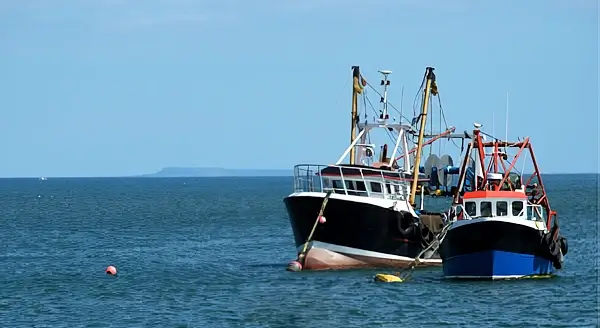When it comes to the health of our oceans, Canada has thrown its weight behind a historic global pact. The World Trade Organization’s (WTO) Agreement on Fisheries Subsidies officially entered into force, marking the first-ever multilateral trade deal that places environmental sustainability front and centre.
Canada, an early supporter, welcomed this milestone with a clear message: fair trade and healthy oceans go hand in hand.
Introduction
On September 26, the Government of Canada welcomed the WTO announcement that its Agreement on Fisheries Subsidies had officially come into force.
This landmark accord is designed to curb harmful subsidies fueling illegal, unreported, and unregulated (IUU) fishing, overfished stocks, and unregulated high-seas fishing. By stepping forward early, Canada reinforced its role as a leader in sustainable fisheries management and fair trade.
What the Agreement Means
The WTO Agreement represents a turning point in international trade. For the first time, WTO members adopted binding global rules to directly protect environmental resources.
Provisions
-
Elimination of subsidies supporting IUU fishing.
-
Ban on subsidies for fishing in already overfished stocks.
-
Prohibition of subsidies for unregulated high-seas fishing.
In other words, fleets engaged in unsustainable practices will no longer be bankrolled by government support.
Canada’s Role and Leadership
The Honourable Maninder Sidhu, Minister of International Trade, highlighted the importance of the deal, stating that “healthy oceans sustain people’s lives and livelihoods around the world.” His message underlined Canada’s dual focus on enforcing fair trade and ensuring environmental protection.
Similarly, Minister of Fisheries Joanne Thompson emphasized that “healthy fish stocks are critical to food security and economic prosperity globally.” Both statements reflect a distinctly Canadian perspective: stewardship of shared resources and responsibility to future generations.
Global Impact of the Agreement
The changes will ripple through global markets, particularly affecting distant-water fleets that depend heavily on subsidies.
-
Short-term strain: Large fleets reliant on fuel and modernization subsidies will feel immediate cost pressures.
-
Levelling the field: Smaller, legally operating fleets—often coastal and community-based—gain competitive breathing room.
This shift mirrors Canada’s long-standing view that sustainability is not a luxury but a necessity for economic resilience.
Wider Economic and Social Effects
| Aspect | Short-Term Impact | Long-Term Impact |
|---|---|---|
| Subsidies | Loss of subsidies for those involved in IUU fishing, high-seas, or overfished stocks. Increased operating costs for certain fleets. | More resilient, sustainable fishing industry. Support possible for sustainable practices. |
| Competition | Unsubsidized fleets may struggle to compete with remaining subsidized operators until enforcement equalizes. | Fairer, more level global competition as harmful subsidies are phased out globally. |
| Compliance Costs | Increased paperwork, tracking, and reporting obligations. | Better access to markets demanding proof of sustainability; compliance may become routine. |
| Market Access | Minimal immediate effect, but non-compliance can lead to export restrictions. | Improved access to premium markets for certified sustainable fisheries. |
| Fish Stocks | Little change; stocks may remain depleted initially. | Recovery of depleted stocks, supporting long-term commercial viability. |
| Community Resilience | Uncertainty and adjustment challenges for fleets and communities reliant on subsidies. | More stable incomes and job security if fish stocks recover and unfair competition reduces. |
Local Implications for Canadian Fisheries
For Canadian fleets in Newfoundland, Nova Scotia, and British Columbia, the deal has tangible benefits. Competing against heavily subsidized foreign fleets has long been a sore point, especially in Atlantic waters. Now, with subsidies curtailed, Canadian operators stand to gain fairer pricing and improved market access.
At the same time, compliance requirements—such as enhanced logbooks, vessel tracking, and sustainability certification—will mean added paperwork and costs. Yet, Canada already has a reputation for strong fisheries management, giving its operators a head start compared to many peers.
Why This Matters for Canadians
Beyond policy talk in Geneva or Ottawa, the agreement connects directly to Canadian dinner tables and communities. Sustainable seafood choices have grown in popularity, and this deal ensures that consumers can enjoy cod, salmon, or lobster with greater confidence about where it came from.
Everyday Benefits
-
More reliable fish stocks for Canadian harvesters.
-
Stronger protection for coastal jobs.
-
Enhanced reputation of Canadian seafood in global markets.
This is not just about protecting fish. It is about safeguarding cultural traditions, like a Saturday night fish fry in the Maritimes or salmon season on the Pacific coast.
Looking Ahead
As the agreement takes root, Canada is encouraging other WTO members to follow suit. The broader the participation, the stronger the impact on both oceans and global trade. While short-term financial strains are inevitable for some fleets, the long-term reward is a healthier, more equitable fishing industry.
For Canada, the message is clear: a rules-based trading system, paired with environmental sustainability, reflects not only our values but also our vision for a resilient future.
The Takeaway
Canada’s early endorsement of the WTO Fisheries Subsidies Agreement shows a balance of pragmatism and principle. By tackling harmful subsidies, supporting fair competition, and prioritizing environmental protection, Canada reinforces its global reputation as a leader in sustainable trade. In a world where oceans face unprecedented pressure, this step is as much about tomorrow’s fish stocks as it is about today’s livelihoods.
Sources: Global Affairs Canada.
Prepared by Ivan Alexander Golden, Founder of THX News™, an independent news organization delivering timely insights from global official sources. Combines AI-analyzed research with human-edited accuracy and context.





